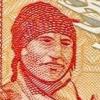
|
-
Posts
7,889 -
Joined
-
Last visited
-
Days Won
1
SocalDinar last won the day on September 23 2015
SocalDinar had the most liked content!
Profile Information
-
Gender
Not Telling
-
Interests
Chasing Comets
SocalDinar's Achievements
-
Hello Umbertino, Just a few city blocks of protests downtown. If you went a few blocks away you wouldnt even know something was going on except for the helicopters. The City of paramount and Compton civil unrest were only one day events. Truthfully its the people wearing masks ( ******* ) that are the agitators. Rat mentality. Once it gets started its hard to stop the escalation. This was nothing like the Rodney King riots. That was pretty intense and citywide. Newsom and Mayor Bass let this happen and it could have been controlled. Thankfully President Trump sent in the National Guard. Im on the fence about sending in the Marines from Camp Pendelton. Thats not needed IMHO I also have no problem with this administartion deporting undocumented people here illegally. My wifes family came here legally in the early 70s. They paid the fees They learned the language and they assimilated. They know the US constitution better than most . They proudly fly an American flag in front of their modest home. They actually get upset at those waving foreign flags.
-
HAHA thats not hot! It was 110 degrees (43 C ) at my high desert house yesterday and we still were outside most of the day
-
PM Advisor: Iraq's natural resources are worth more than $16 trillion Economy +A -A Baghdad – INA Prime Minister's financial advisor, Mazhar Mohammed Salih, confirmed on Wednesday that Iraq is moving towards diversifying its gross domestic product (GDP) sources by expanding investment in the mining sector, He noted that the value of Iraq's natural resources exceeds $16 trillion. Saleh told the Iraqi News Agency (INA): "Iraq is moving towards diversifying its GDP sources by expanding investment in the mining sector, a sector that has been neglected for decades, the government has signed memoranda of understanding with reputable international companies in the fields of exploration and investment in minerals, especially in the fields of phosphate, sulfur, lithium and copper, this is within the framework of the strategic directions of the Iraqi government program to diversify sources of national income and optimally exploit the country's wealth." He added, "Investment in the mining sector will contribute to attracting billions of dollars in fields ready for development, such as sulfur, phosphate, lithium, and other minerals, "He pointed out that "Iraq ranks first in the world in terms of the concentration of natural resources per square kilometer, and ninth in the world in the value of various natural resources, with an estimated value exceeding 16 trillion US dollars, according to published global estimates." He pointed out that "the various reserves of the earth's wealth constitute a diverse stock of minerals, foremost among which is phosphate: its reserves are estimated at more than 10 billion tons, and our country is second in the world in terms of reserves, and it is concentrated in the Akashat area in Anbar Governorate, secondly, free sulfur: which our country enjoys large reserves in Mishraq in Nineveh Governorate and is considered one of the largest free sulfur fields in the world, the third is silica: in the Najaf Ashraf region and western Iraq, and it is used in the glass, electronics and semiconductor industries, and it is one of the most important and purest reserves in the world according to international published global readings." He continued, "Likewise, iron, manganese, copper, and gold are distributed across various regions of Iraq, particularly in the Kurdistan Region and the western and central borders, except for southern Iraq, which possesses vast reserves of other rare natural resources." He pointed out that "the policy of diversifying the national economy through the extraction and processing of mineral resources for national industries, and then adopting their export by maximizing value-added chains in manufacturing or semi-manufacturing industries, will add at least 10 percent to the GDP in the first phase." He pointed out that "after that, the percentage will increase to form, over time, one of the pillars of diversifying national income sources, especially if the link between mineral investment and the development of national manufacturing industries grows, such as fertilizer, aluminum, glass, electronics, and batteries related to renewable energy, in addition to the introduction of foreign capital, advanced digital technology and services, the provision of national job opportunities, and investment in Iraqi people as a productive national energy." He emphasized that "present and future generations will witness a new era of investment for Iraq in economic and technological progress and prosperity, towards building a promising model of balanced development." He noted that "Iraq, which is strongly looking forward to building investments in mining fields as an additional resource in the medium and long term, does not rule out investment in oil fields, but it cannot completely replace oil in the near term, rather, it serves as an important complement to the strategy for diversifying the national economy." He concluded by saying, "The mining sector represents a promising opportunity for Iraq, not only to increase public revenues, but also to restore the structural balance of the Iraqi economy, create significant national employment opportunities, and achieve diversified development in regions rich in natural resources, which will lead to increased investment in infrastructure, as part of a model of geographically balanced economic development for all of Iraq." Today, 11:57 https://ina.iq/eng/40324-pm-advisor-iraqs-natural-resources-are-worth-more-than-16-trillion.html
-
Iraq sees surge in investment spending, eyes economic diversification Iraq Jawad Al-Samarraie May 12, 2025 277 2 min The design of the new headquarters of the Central Bank of Iraq. Photo: ZHA Baghdad (IraqiNews.com) – Iraq is witnessing a significant upswing in business activity, with current investment spending across various sectors reaching approximately 88 trillion Iraqi dinars, a key factor in a 35% boost to the nation’s annual GDP. This was confirmed on Thursday (May 8, 2025) by Mazhar Mohammed Salih, the Prime Minister’s Financial Advisor. Salih highlighted that an impressive 40% of this total investment originates from the private sector, through independent projects or partnerships with the government. He emphasized Iraq’s significant and tangible progress in reactivating investment in its world-class sulfur and phosphate reserves, with negotiations ongoing with major international companies for high value-added exports. This initiative aims to diversify Iraq’s economy away from oil dependency. Economic expert Akram Hantoush noted that investment volume has surged from approximately $45 billion before 2017 to around $88-$90 billion today. He projected private sector investments could exceed $500 billion with ongoing reforms in investment laws and policies aimed at developing crucial infrastructure. Iraq is also actively pursuing the recovery of smuggled funds through international cooperation, further strengthening its financial resources. https://www.iraqinews.com/iraq/invest-in-iraq-economic-update-private-sector-growth/
-
Cooperation between Iraq and the International Monetary Fund
SocalDinar replied to RJG's topic in Iraq & Dinar Related News
Iraqi PM to IMF: Be our strategic partner in economic overhaul PoliticsiraqbreakingIMFMohammed Shia al-Sudani 2025-05-12 12:50 Share font Shafaq News/ On Monday, Iraqi Prime Minister Mohammed Shia al-Sudani called on the International Monetary Fund (IMF) to expand its support for Iraq’s economic reform agenda. During talks in Baghdad with IMF Iraq mission chief Jean-Guillaume Poulain and resident representative Mohammed Jaber, al-Sudani described the Fund as a “strategic partner” in restoring fiscal stability and advancing structural reforms. “Iraq’s progress in financial and economic management reflects a move toward long-term stability and sustainable growth,” he stated, urging continued international backing to reinforce reforms and attract investment. Meanwhile, Poulain acknowledged improvements in Iraq’s tax and customs systems and reaffirmed the IMF’s readiness to provide technical assistance, particularly to strengthen non-oil revenue generation. The meeting followed the IMF’s assessment of Iraq’s economic outlook, which highlighted improved political stability and a recovery in the non-oil sector since late 2022. However, the Fund warned of growing medium-term debt risks and emphasized the need for fiscal discipline and private-sector-led growth to reduce reliance on oil, which still accounts for over 90% of government revenues. https://shafaq.com/en/Iraq/Iraqi-PM-to-IMF-Be-our-strategic-partner-in-economic-overhaul The International Monetary Fund. Photo: AFP Baghdad (IraqiNews.com) – The Iraqi Prime Minister, Mohammed Shia Al-Sudani, praised on Monday the International Monetary Fund’s (IMF) efforts to assist Iraqi financial institutions, reaffirming their crucial local and international significance. Al-Sudani’s remarks took place during his meeting with the Head of the International Monetary Fund (IMF) Mission in Iraq, Jean-Guillaume Poulain, and the IMF’s Resident Representative in Iraq, Mohamed Jaber, according to a statement released by the Prime Minister’s Office (PMO). Al-Sudani noted that the government’s outcomes in finance, banking, and economics represent significant steps toward the country’s stability and long-term growth. The IMF is an important partner in Iraq’s attempts to restructure the economy and improve stability, according to Al-Sudani. The Iraqi prime minister emphasized the importance of continued international partner support for the government in increasing its efforts to mitigate the impact of regional challenges, facilitating the measures aimed at diversifying and sustaining the economy, and creating an investment environment attracting major development projects. Poulain hailed the Iraqi government’s remarkable progress in economic reform, particularly the development of the tax and customs systems, and expressed the IMF’s willingness to increase cooperation and provide guidance in areas related to increasing non-oil revenues. https://www.iraqinews.com/iraq/baghdad-hails-imfs-efforts-to-assist-iraqi-financial-institutions/ -
Wife an I bought our dream desert home here in Johnson Valley. Five fully fenced with 2,000 square ft stick home. with 3,000 square foot garage. Has a new well and produces great water. Spent two years getting it all cleaned up and remodeled it all. We get plenty of birds and animals. Roadrunners, Dove, Quail, turkey vultures and plenty of coyotes and mountain lions. Even see bighorn and mule dear in the winters. Only sounds are the birds and the wind ,,,,, and the occasional off roader. Love this place. The Mojave greens not so much ( I dont relocate rattlesnakes LOL ). 30 minutes from Joshua Tree National park and 45 mins from Big Bear.
-
- 1 reply
-
- 1
-

-
Congratulations. Keep busy! Too many people i know who have retired from a busy job die soon after. I enjoy my bussinesses so much that i will keep working till i have my dirt nap.
-
Awesome song Umbertino. Thanks
-
Below $40: US bank predicts oil prices will fall
SocalDinar replied to RJG's topic in Iraq & Dinar Related News
IMF: Iraq among top OPEC states needing high oil price EconomyiraqbreakingOil pricesIMFBudger 2025-04-09 02:16 Share font Shafaq News/ Iraq will require an average oil price of more than $92 per barrel to balance its national budget in 2025, the International Monetary Fund (IMF) said on Wednesday. According to an IMF table outlining the fiscal breakeven oil prices for OPEC member states in 2025, Iraq’s breakeven price was estimated at $92.43 per barrel. Iran topped the list, requiring $124.12 per barrel to balance its budget, followed by Algeria at $118.95 and Kazakhstan at $115.93. Saudi Arabia was estimated to need $90.94, while Kuwait would require $81.84. Azerbaijan and Libya need $73.14 and $70.05, respectively. The UAE had the lowest threshold among the group, at $49.95 per barrel. Global oil prices have declined in recent days, weighed down by market concerns over US President Donald Trump’s newly imposed tariffs on several of Washington’s trade partners. Meanwhile, a partial return of oil production by OPEC has added to fears of oversupply. https://shafaq.com/en/Economy/IMF-Iraq-among-top-OPEC-states-needing-high-oil-price






.thumb.jpg.7ce876e88b2cf8a5be70e8f35cee3973.jpg)



